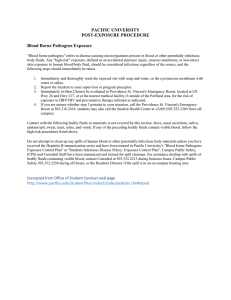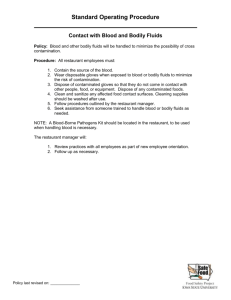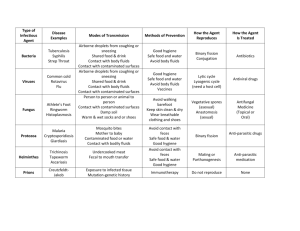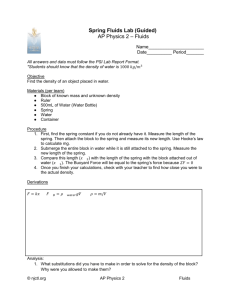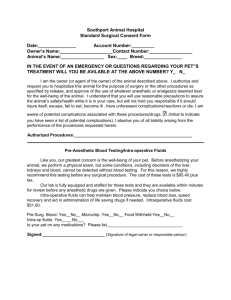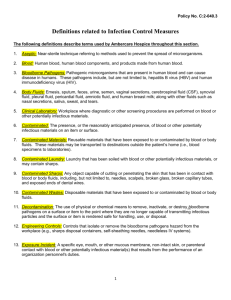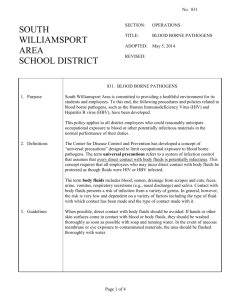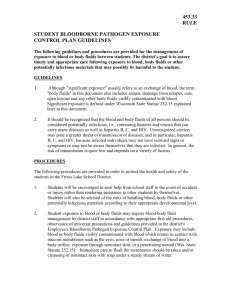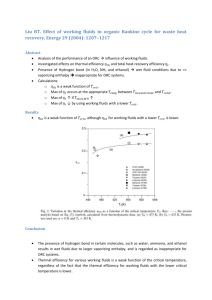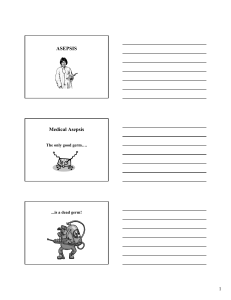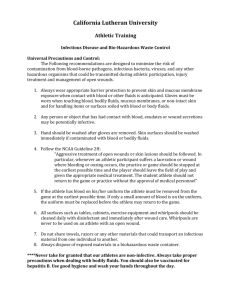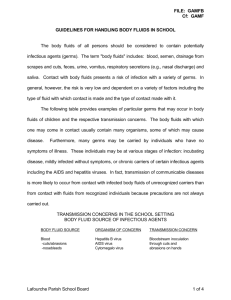Procedure 3-50 - Child and Family Development
advertisement
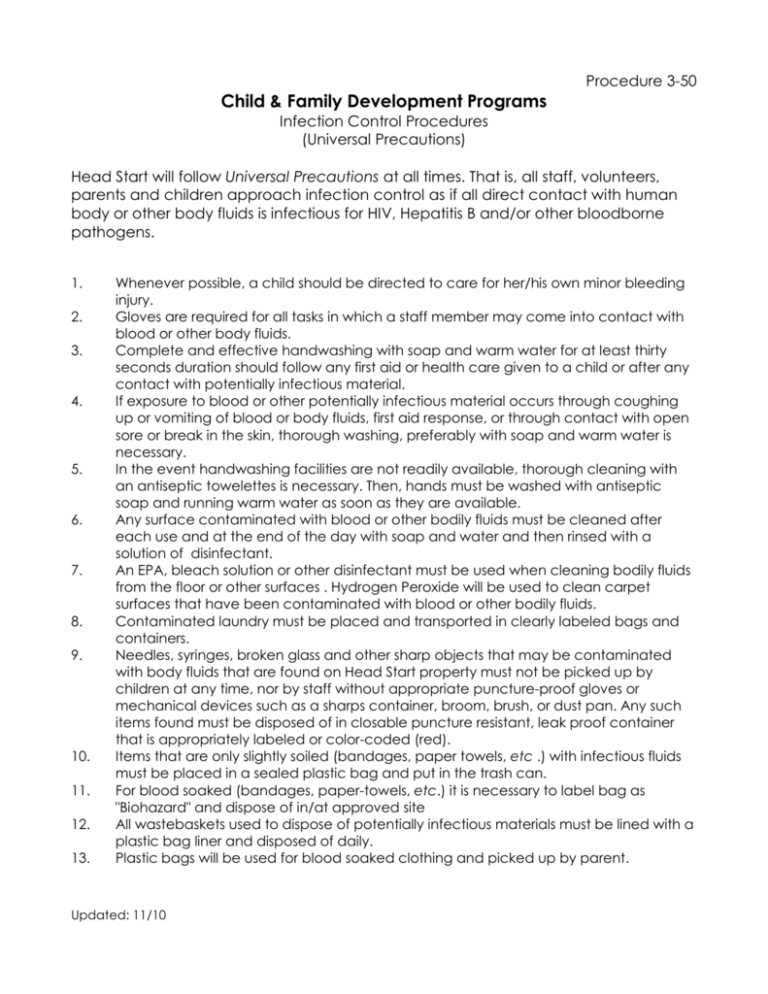
Procedure 3-50 Child & Family Development Programs Infection Control Procedures (Universal Precautions) Head Start will follow Universal Precautions at all times. That is, all staff, volunteers, parents and children approach infection control as if all direct contact with human body or other body fluids is infectious for HIV, Hepatitis B and/or other bloodborne pathogens. 1. 2. 3. 4. 5. 6. 7. 8. 9. 10. 11. 12. 13. Whenever possible, a child should be directed to care for her/his own minor bleeding injury. Gloves are required for all tasks in which a staff member may come into contact with blood or other body fluids. Complete and effective handwashing with soap and warm water for at least thirty seconds duration should follow any first aid or health care given to a child or after any contact with potentially infectious material. If exposure to blood or other potentially infectious material occurs through coughing up or vomiting of blood or body fluids, first aid response, or through contact with open sore or break in the skin, thorough washing, preferably with soap and warm water is necessary. In the event handwashing facilities are not readily available, thorough cleaning with an antiseptic towelettes is necessary. Then, hands must be washed with antiseptic soap and running warm water as soon as they are available. Any surface contaminated with blood or other bodily fluids must be cleaned after each use and at the end of the day with soap and water and then rinsed with a solution of disinfectant. An EPA, bleach solution or other disinfectant must be used when cleaning bodily fluids from the floor or other surfaces . Hydrogen Peroxide will be used to clean carpet surfaces that have been contaminated with blood or other bodily fluids. Contaminated laundry must be placed and transported in clearly labeled bags and containers. Needles, syringes, broken glass and other sharp objects that may be contaminated with body fluids that are found on Head Start property must not be picked up by children at any time, nor by staff without appropriate puncture-proof gloves or mechanical devices such as a sharps container, broom, brush, or dust pan. Any such items found must be disposed of in closable puncture resistant, leak proof container that is appropriately labeled or color-coded (red). Items that are only slightly soiled (bandages, paper towels, etc .) with infectious fluids must be placed in a sealed plastic bag and put in the trash can. For blood soaked (bandages, paper-towels, etc.) it is necessary to label bag as "Biohazard" and dispose of in/at approved site All wastebaskets used to dispose of potentially infectious materials must be lined with a plastic bag liner and disposed of daily. Plastic bags will be used for blood soaked clothing and picked up by parent. Updated: 11/10
